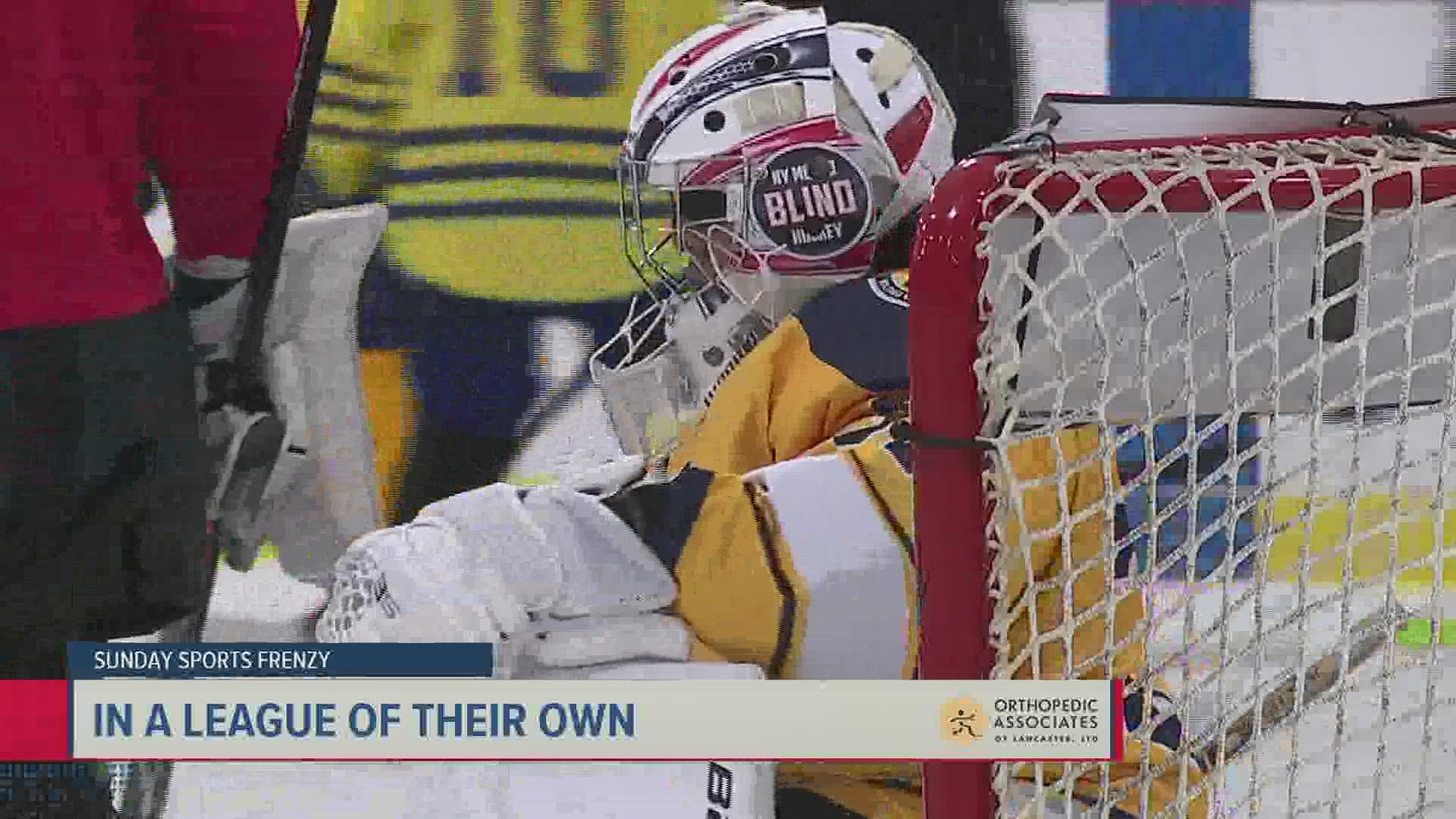YORK, Pa. — Another weekend means another stretch of hockey tournaments at York Ice Arena.
"These tournaments are the height of my year, every time," said Brock Kitterman of the Pittsburgh Rhinos. "Every three months, when I get home from a tournament, I'm like, 'Okay, let's look at the calendar. When's the next one?'"
Kitterman knows that when his league hits the ice, people slowly start to trickle into the rink to watch, if only out of curiosity.
That's because to play in this league, you have to be blind or have at least a 90 percent visual impairment.
"It means the world to us," claims Dirk Morgan, who plays for the Washington Blind Hockey Club, as well as Team USA. "I know for guys like me that thought their hockey days were over, finding out that they've adapted our sport so we can continue playing it, even though our vision has gotten much worse, it's made a lot of difference in my life. It gives me something to do with my kids."
"I started playing that was five and I lost my vision at almost 11 years old and I discovered this game two years ago," said the Hartford Braillers' Max Shear.
With blind hockey teams scattered across North America, they'll get together every few months to improve their skills and take on one another. Like any hockey community, this is a close group.
"One of the guys on my team, I only met him a few years ago and he's The Godfather to my son. So, that's how tight we are," said Morgan with a smile."
As you would imagine, there are some differences between the game of hockey that the average fan knows, and the one played by these athletes.
"The metal puck, it's bigger and makes noise so we can find it by sound," said Morgan.
"When we cross the blue line into the offensive zone, we must create one clean pass. So another player from the opposite team cannot touch the puck from stick to stick. Once that happens, the referee will blow a loud shrill whistle that's different from their classic whistle to signify to the completely blind goalie, 'Guess what? here comes the puck,'" said Kitterman.
As new teams are created, like the latest addition in Philadelphia, the league and opportunities grow.
"A lot of NHL teams are sponsoring their own teams," added Shear. "These large organizations are willing to help us out and give us some free ice time and let us play."
But at the end of the day, they're just fans of hockey who enjoy lacing up the skates, working towards new goals, and building relationships that last off the ice.
"It's nice that we get to play eight hours of hockey total, but then you get 48 hours off the ice where you get to just hang out as a community, and to me, that's one of the greatest things in the world," said Kitterman.

